第31章 ON SIR ISAAC NEWTON'S OPTICS(1)
The philosophers of the last age found out a new universe;and a circumstance which made its discovery more difficult was that no one had so much as suspected its existence.The most sage and judicious were of opinion that it was a frantic rashness to dare so much as to imagine that it was possible to guess the laws by which the celestial bodies move and the manner how light acts.Galileo,by his astronomical discoveries,Kepler,by his calculation,Descartes (at least,in his dioptrics),and Sir Isaac Newton,in all his works,severally saw the mechanism of the springs of the world.The geometricians have subjected infinity to the laws of calculation.
The circulation of the blood in animals,and of the sap in vegetables,have changed the face of Nature with regard to us.Anew kind of existence has been given to bodies in the air-pump.By the assistance of telescopes bodies have been brought nearer to one another.Finally,the several discoveries which Sir Isaac Newton has made on light are equal to the boldest things which the curiosity of man could expect after so many philosophical novelties.
Till Antonio de Dominis the rainbow was considered as an inexplicable miracle.This philosopher guessed that it was a necessary effect of the sun and rain.Descartes gained immortal fame by his mathematical explication of this so natural a phenomenon.He calculated the reflections and refractions of light in drops of rain.And his sagacity on this occasion was at that time looked upon as next to divine.
But what would he have said had it been proved to him that he was mistaken in the nature of light;that he had not the least reason to maintain that it is a globular body?That it is false to assert that this matter,spreading itself through the whole,waits only to be projected forward by the sun,in order to be put in action,in like manner as a long staff acts at one end when pushed forward by the other.That light is certainly darted by the sun;in fine,that light is transmitted from the sun to the earth in about seven minutes,though a cannonball,which were not to lose any of its velocity,could not go that distance in less than twenty-five years.
How great would have been his astonishment had he been told that light does not reflect directly by impinging against the solid parts of bodies,that bodies are not transparent when they have large pores,and that a man should arise who would demonstrate all these paradoxes,and anatomise a single ray of light with more dexterity than the ablest artist dissects a human body.This man is come.
Sir Isaac Newton has demonstrated to the eye,by the bare assistance of the prism,that light is a composition of coloured rays,which,being united,form white colour.A single ray is by him divided into seven,which all fall upon a piece of linen,or a sheet of white paper,in their order,one above the other,and at unequal distances.The first is red,the second orange,the third yellow,the fourth green,the fifth blue,the sixth indigo,the seventh a violet-purple.Each of these rays,transmitted afterwards by a hundred other prisms,will never change the colour it bears;in like manner,as gold,when completely purged from its dross,will never change afterwards in the crucible.As a superabundant proof that each of these elementary rays has inherently in itself that which forms its colour to the eye,take a small piece of yellow wood,for instance,and set it in the ray of a red colour;this wood will instantly be tinged red.But set it in the ray of a green colour,it assumes a green colour,and so of all the rest.
From what cause,therefore,do colours arise in Nature?It is nothing but the disposition of bodies to reflect the rays of a certain order and to absorb all the rest.